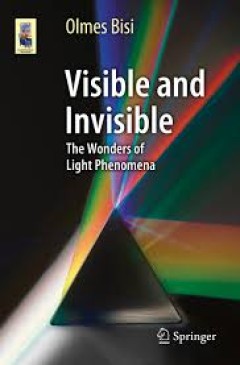Filter by

Kinds come first :age, gender, class, and ethnicity give meaning to measures
An argument that the meaning of a psychological or biological measure depends on the age, gender class, and ethnicity of the human subject.OCLC-licensed vendor bibliographic record.
- Edition
- -
- ISBN/ISSN
- 9780262355049
- Collation
- 1 online resource (216 pages)
- Series Title
- -
- Call Number
- -

The Vanishing Middle Class :Prejudice and Power in a Dual Economy.
Why the United States has developed an economy divided between rich and poor and how racism helped bring this about.OCLC-licensed vendor bibliographic record.
- Edition
- -
- ISBN/ISSN
- 9780262348768
- Collation
- 1 online resource (288 pages)
- Series Title
- -
- Call Number
- -

Classification in the wild :the science and art of transparent decision making
"A "bounded rationality" approach to understanding how people classify entities in real world situations, with imperfect information and limited time"--OCLC-licensed vendor bibliographic record.
- Edition
- -
- ISBN/ISSN
- 0262363224
- Collation
- 1 online resource.
- Series Title
- -
- Call Number
- -

Materials in eighteenth-century science :a historical ontology
A history of raw materials and chemical substances from the late seventeenth to the early nineteenth centuries that scrutinizes the modes of identification and classification used by chemists and learned practitioners of the period, examining the ways in which their practices and understanding of the material objects changed.In the eighteenth century, chemistry was the science of materials. Che…
- Edition
- -
- ISBN/ISSN
- 9780262277266
- Collation
- 1 online resource (x, 345 pages) :illustrations.
- Series Title
- -
- Call Number
- -

Sorting things out :classification and its consequences
"In Sorting Things Out, Geoffrey C. Bowker and Susan Leigh Star explore the role of categories and standards in shaping the modern world. They investigate a variety of classification systems, including the International Classification of Diseases, the Nursing Interventions Classification, race classification under apartheid in South Africa, and the classification of viruses and of tuberculosis.…
- Edition
- -
- ISBN/ISSN
- 9780262269070
- Collation
- 1 online resource (xii, 377 pages) :illustrations, maps.
- Series Title
- -
- Call Number
- -

Waves and Compressible Flow
Now in its second edition, this book continues to give readers a broad mathematical basis for modelling and understanding the wide range of wave phenomena encountered in modern applications. New and expanded material includes topics such as elastoplastic waves and waves in plasmas, as well as new exercises. Comprehensive collections of models are used to illustrate the underpinning mathematic…
- Edition
- -
- ISBN/ISSN
- 978-1-4939-3381-5
- Collation
- -
- Series Title
- -
- Call Number
- -

Visible and Invisible The Wonders of Light Phenomena
Light phenomena have intrigued humankind since prehistory. Think of the rainbow, a sunset on the sea, a game of shadows. Humans have always used light for their own needs, from cooking food to illuminating a room. However, light is not only limited to what we can see with our eyes. The invisible part of the electromagnetic spectrum is broad and dynamic. This book outlines the mysteries and w…
- Edition
- -
- ISBN/ISSN
- 978-3-319-09825-8
- Collation
- -
- Series Title
- -
- Call Number
- -

Elementary Mechanics Using Matlab A Modern Course Combining Analytical and N…
This book – specifically developed as a novel textbook on elementary classical mechanics – shows how analytical and numerical methods can be seamlessly integrated to solve physics problems. This approach allows students to solve more advanced and applied problems at an earlier stage and equips them to deal with real-world examples well beyond the typical special cases treated in standard te…
- Edition
- 1
- ISBN/ISSN
- 978-3-319-19587-2
- Collation
- 77 b/w illustrations, 178 illustrations in colour
- Series Title
- -
- Call Number
- -

Elementary Mechanics Using Python A Modern Course Combining Analytical and N…
This book – specifically developed as a novel textbook on elementary classical mechanics – shows how analytical and numerical methods can be seamlessly integrated to solve physics problems. This approach allows students to solve more advanced and applied problems at an earlier stage and equips them to deal with real-world examples well beyond the typical special cases treated in standard te…
- Edition
- 2
- ISBN/ISSN
- 978-3-319-19596-4
- Collation
- 76 b/w illustrations, 180 illustrations in colour
- Series Title
- -
- Call Number
- -

The Poetic Edda: A Dual-Language Edition
This book is an edition and translation of one of the most important and celebrated sources of Old Norse-Icelandic mythology and heroic legend, namely the medieval poems now known collectively as the Poetic Edda or Elder Edda. Included are thirty-six texts, which are mostly preserved in medieval manuscripts, especially the thirteenth-century Icelandic codex traditionally known as the Codex Regi…
- Edition
- Ed. 1
- ISBN/ISSN
- 9781800647725, 9781800647732
- Collation
- 894
- Series Title
- -
- Call Number
- 801 PET p
 Computer Science, Information & General Works
Computer Science, Information & General Works  Philosophy & Psychology
Philosophy & Psychology  Religion
Religion  Social Sciences
Social Sciences  Language
Language  Pure Science
Pure Science  Applied Sciences
Applied Sciences  Art & Recreation
Art & Recreation  Literature
Literature  History & Geography
History & Geography